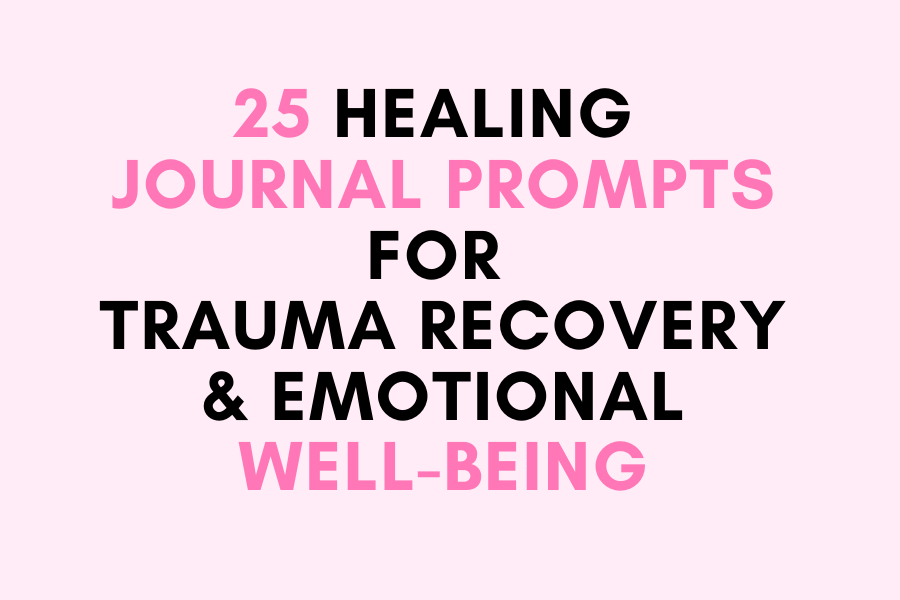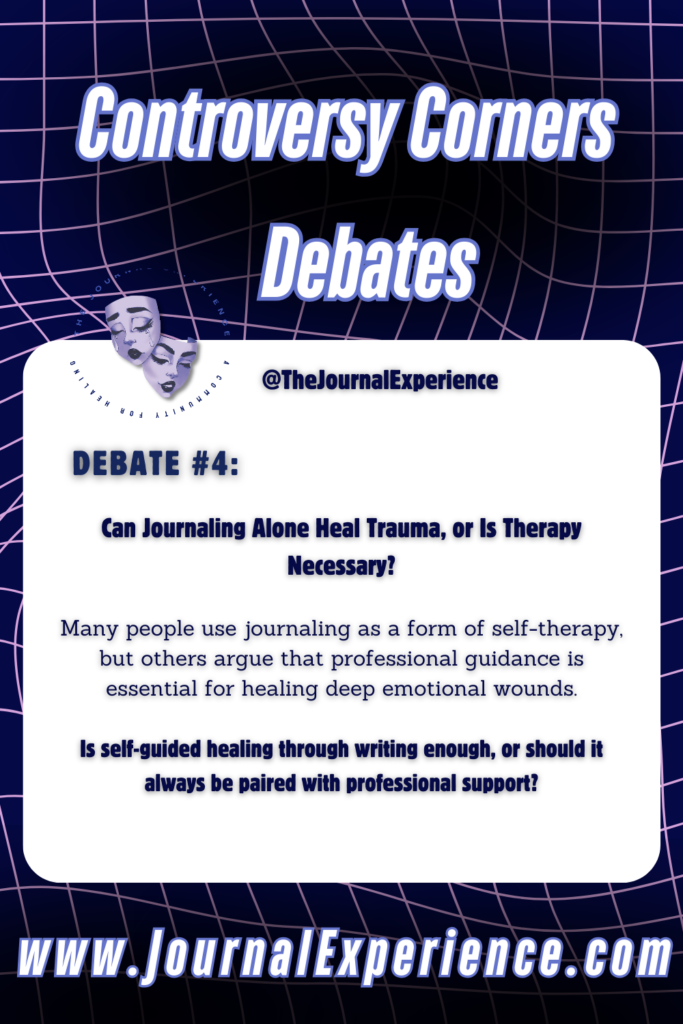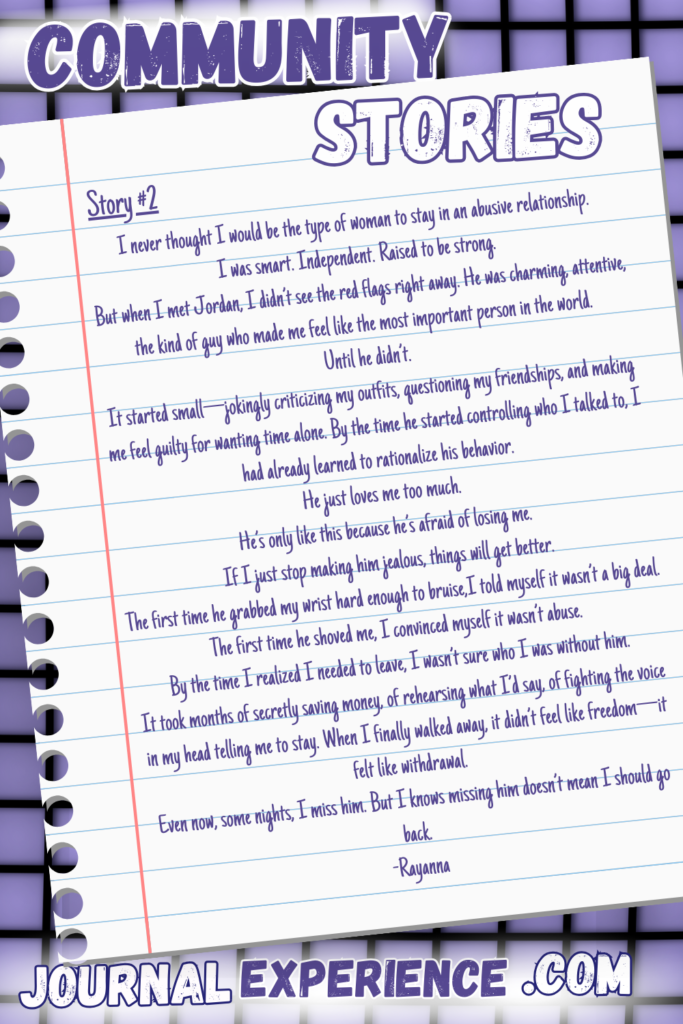Healing from trauma is a deeply personal journey, one that requires patience, self-compassion, and intentional reflection. When emotions feel overwhelming or memories seem too painful to process, journaling can serve as a powerful therapeutic tool—offering a safe space to explore emotions, express thoughts, and regain a sense of control over your healing journey.

Through guided introspection, writing allows us to make sense of past experiences, release emotional burdens, and foster self-awareness. It promotes emotional well-being, self-care, and personal growth while helping us reconnect with ourselves in a way that feels both safe and empowering.
This post provides 25 healing journal prompts designed to help you process trauma, release suppressed emotions, cultivate self-compassion, and develop healthy coping strategies. These prompts encourage gentle reflection, making space for healing at your own pace.
If you’re ready to embark on this path toward recovery, grab your journal and begin writing. For ongoing healing support, sign up for The Journal Experience newsletter, where you’ll find additional trauma recovery resources, guided exercises, and a community that understands your journey.
Journal Prompts for Healing Trauma
1. Processing Past Experiences
Understanding and reflecting on past experiences is essential for healing. These prompts will help you process difficult memories in a structured and supportive way.
1. Describe a difficult experience and how it shaped you.
2. What is one moment from your past that still affects you today? How does it show up in your life?
3. How did you cope with trauma in the past? Were those coping mechanisms helpful or harmful?
4. What is one thing you wish you could tell your younger self about healing?
5. How has your experience with trauma changed your perspective on life?
6. What triggers painful memories for you, and how do you currently handle them?
7. If your trauma had a voice, what would it say?
8. What aspects of your past do you find hardest to talk about? Why?
9. How has your trauma shaped the way you view relationships and trust?
10. In what ways have you grown stronger because of what you’ve been through?
2. Emotional Recovery Exercises
Healing requires acknowledging and working through emotions instead of suppressing them. These prompts encourage emotional release and clarity.
11. What emotions have you been suppressing, and why?
12. Describe what anger, sadness, or fear feel like in your body.
13. Write about a time when you allowed yourself to fully feel and express your emotions. How did it impact you?
14. What are three healthy ways you can express difficult emotions?
15. When do you feel the safest to explore your emotions?
16. How do you respond to emotional pain, and what would you like to change about that response?
17. What fears still hold you back from healing fully?
18. What message would your past self need to hear right now to feel safe?
19. If your emotions were a storm, what kind of weather would represent what you feel today?
20. What small steps can you take to make emotional expression a more natural part of your healing journey?

3. Self-Compassion & Forgiveness
Trauma often leaves behind feelings of shame, guilt, or self-blame. These prompts focus on forgiving yourself, building self-compassion, and recognizing your inherent worth.
21. Write a letter of forgiveness to yourself. What do you need to let go of?
22. What is something you have unfairly blamed yourself for? How can you shift that perspective?
23. List five things you love about yourself, even on your hardest days.
24. If your best friend had gone through what you experienced, what would you say to comfort them?
25. How can you show yourself kindness in moments of self-doubt?
26. What does self-love mean to you, and how can you practice it daily?
27. How would your inner child feel about the way you treat yourself today?
28. What is one thing you can do today to be gentler with yourself?
29. Describe a time when you chose to extend compassion to someone else. How can you apply that same grace to yourself?
30. What does true self-acceptance look and feel like?
4. Healing Through Journaling
Journaling is an active form of self-care. These prompts encourage you to reflect on your progress and develop healthy coping mechanisms that support healing.
31. What healthy coping strategies have helped you the most?
32. How do you self-soothe when you’re feeling triggered or overwhelmed?
33. Create a list of grounding techniques that help you feel safe in the present moment.
34. What role does writing play in your healing process?
35. What are three small, achievable actions you can take to prioritize your emotional well-being?
36. Describe a moment when you felt a sense of peace. What contributed to that feeling?
37. What music, art, or hobbies bring you comfort? How can you incorporate more of them into your life?
38. Write about a time when you successfully navigated a difficult emotional moment.
39. What does a safe, nurturing space look like for you? How can you create one?
40. How do you remind yourself that healing is a journey, not a race?

5. Trauma Release & Moving Forward
Letting go of the past does not mean forgetting—it means releasing its control over your present. These prompts focus on moving forward, reclaiming your power, and embracing healing.
41. What affirmations can support your healing journey? Write 10 affirmations that feel meaningful to you.
42. What does freedom from past pain look like to you?
43. How do you envision your future self once healing has taken place?
44. What are three healthy boundaries you can set to protect your peace?
45. How can you redefine your story in a way that empowers you?
46. Write about a moment when you felt in control of your healing journey.
47. What is one positive belief about yourself that you want to cultivate?
48. How does letting go of resentment benefit you?
49. What are the biggest lessons your trauma has taught you?
50. If you could give yourself permission to fully heal, what would that look like?
Overview
Journaling is a powerful tool in trauma healing and emotional well-being—it allows you to process painful experiences, embrace self-compassion, and develop strategies for moving forward. By engaging with these prompts, you are taking an active role in your healing journey, giving yourself space to express, release, and rebuild.
Healing doesn’t happen overnight, and it’s okay to move at your own pace. Some days will feel lighter than others, and some prompts may bring up difficult emotions. Remember to approach this process with kindness and patience—your healing is valid, and your growth is unfolding in its own time.
If you found these prompts helpful, join The Journal Experience for more self-discovery tools, guided exercises, and support on your path to recovery. You don’t have to heal alone—this journey is yours to take, but support is always available along the way. Keep writing, keep feeling, and most importantly, keep moving forward.
